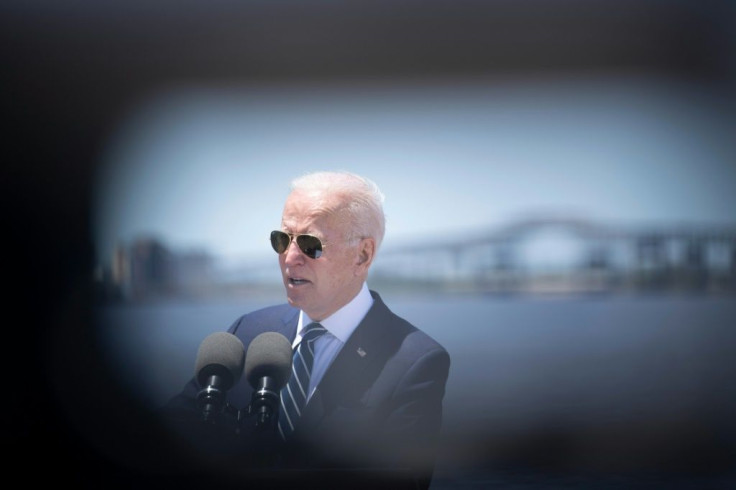White House Slashes Infrastructure Proposal In Bid To Lure Republicans
The White House on Friday proposed lowering the price tag of President Joe Biden's proposed infrastructure spending package by half-a-trillion dollars in a bid to attract support from the Republican opposition.
Biden in March proposed the American Jobs Plan, which was initially envisioned to cost around $2.3 trillion and direct money towards fixing roads and bridges as well as expanding services like broadband internet and increasing climate change resiliency across the United States.
But with his Democratic Party controlling Congress by a small margin, Biden is under pressure to find Republican support for the measure, and White House Press Secretary Jen Psaki announced the administration had dropped the cost of the measure to $1.7 trillion "in the spirit of finding common ground."
"This proposal exhibits a willingness to come down in size, giving on some areas that are important to the president... while staying firm in areas that are most vital to rebuilding our infrastructure and industries of the future, making our country more competitive with China," she told reporters.
Republicans, who had shown little support for Biden's intention to pay for the proposal via higher taxes on corporations, did not react immediately to the White House counteroffer.

Earlier in the day, House Republican leader Kevin McCarthy proposed spending $460 billion on infrastructure while calling the president's plan "another $2 trillion in spending on a wish-list of progressive policies."
Psaki said money included in the original plan to pay for research, supply chains, manufacturing and small businesses would be shifted to other bills, lowering the American Jobs Plan's price tag overall.
It would also reduce overall spending on roads and bridges, as well as on broadband.
However spending on improved rail transportation would stay, "especially considering China's level of investment in such projects," Psaki said, while money for the removal of lead pipes and projects to bolster the country against climate change would also remain.
The White House also rejected ideas from Republicans to increase gas taxes or impose user fees instead of raising taxes on corporations, Psaki said.
Biden "believes that the extraordinarily wealthy companies... many of whom have not paid taxes in recent years, can afford a modest increase to pay for middle class jobs," Psaki said.
© Copyright AFP 2024. All rights reserved.







